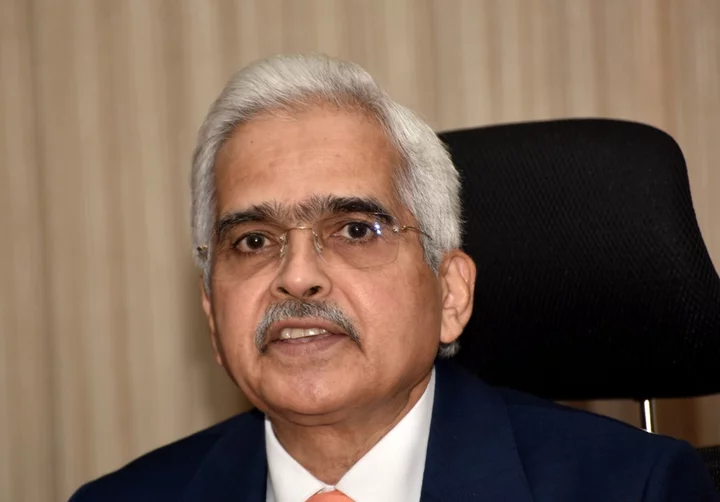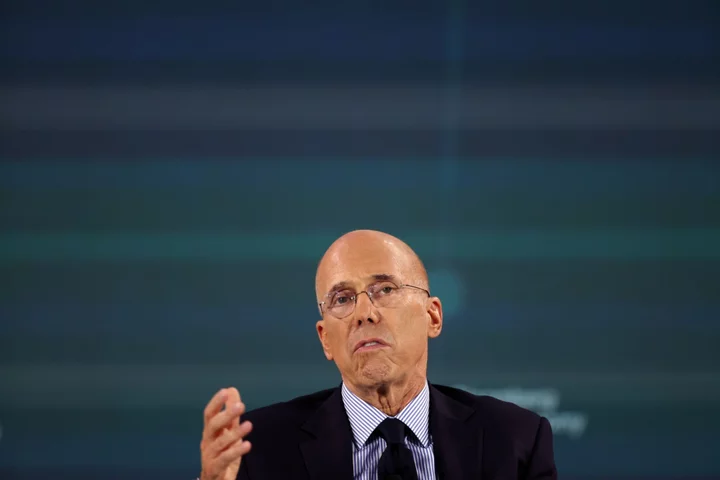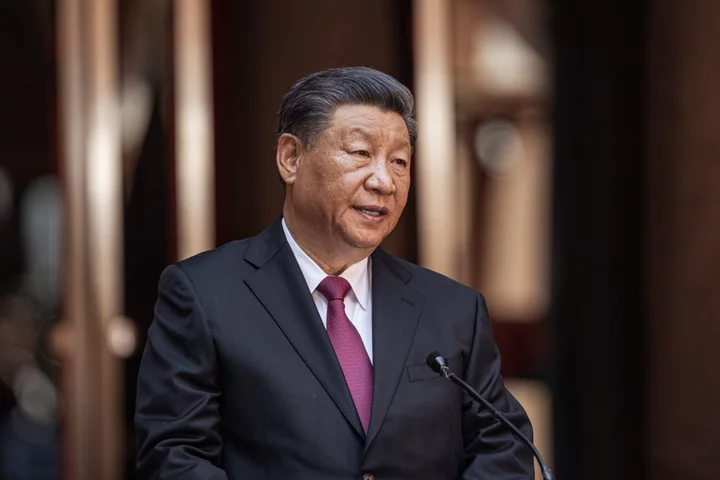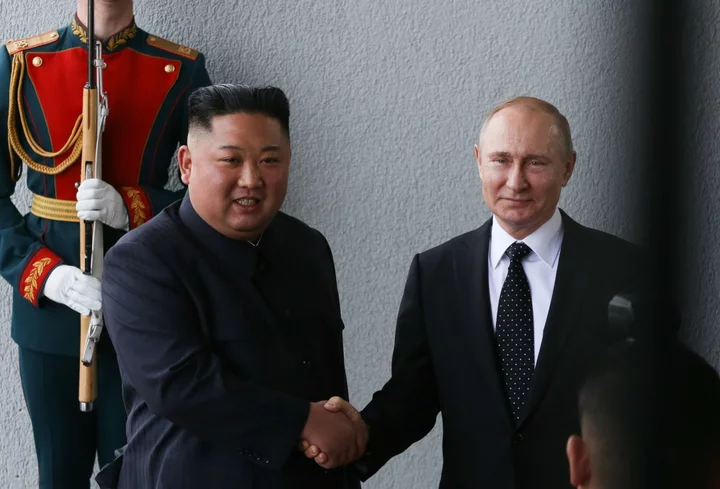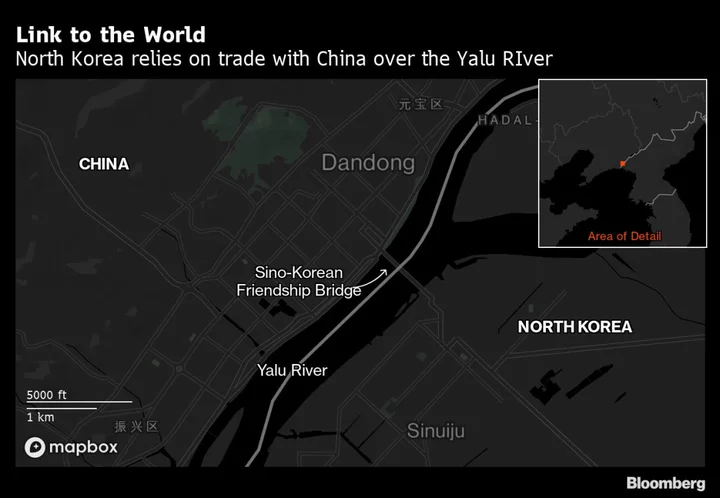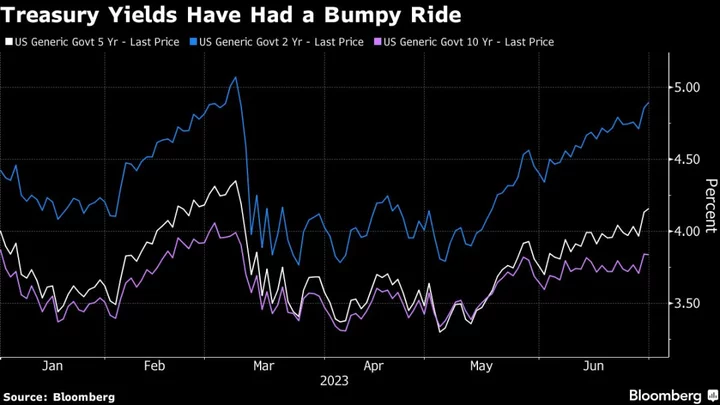The Reserve Bank of India is expected to pause for a second straight month as inflation eases and market watchers are looking for cues of a shift in policy stance to support growth in Asia’s third largest economy.
All 40 economists in a Bloomberg survey forecast the Indian central bank will keep the repurchase rate unchanged at 6.50% on Thursday, signaling that inflation could cool further in the months ahead. Consumer price growth slowed to 18-month low of 4.7%, edging toward the midpoint of the RBI’s 2%-6% target range.
Thirteen economists expect the monetary policy committee to retain “withdrawal of accommodation” language in the statement, while three saw a dilution in the phrasing and the remaining two estimate a shift to neutral. The rest of the economists didn’t share their forecasts.
India’s latest quarterly growth figures exceeded estimates last week, bringing about an expansion of 7.2% for the last fiscal year. Although this is slight moderation, the South Asian country is posting one of the fastest growth rates among major economies.
“Amid steady growth and falling inflation, RBI can opt to watch global events unfold from the sidelines, especially given India’s improved macro stability,” said Rahul Bajoria, economist at Barclays Plc. “That should enable the full transmission of earlier policy rate hikes without necessarily being very disruptive.”
Most global central banks are pausing on further rate hikes as they assess the impact of past actions and falling global commodity prices. The US Federal Reserve may skip-a-hike when it meets next week, but the Reserve Bank of Australia unexpectedly raised key rates on Tuesday citing elevated prices.
Here’s what to watch as RBI Governor Shaktikanta Das announces the decision at 10 a.m. in Mumbai, and addresses a press conference at noon:
Inflation Vs Growth
The central bank governor warned last month that there was “no room for complacency” even if inflation has moderated. Kaushik Das, economist with Deutsche Bank AG, said the RBI may trim its inflation forecast to 5% from 5.2% in its last review, while retaining a 6.5% growth target in the current fiscal year.
Analysts are tracking how the rate-setters will assess the risks to headline inflation in the light of a likely occurence of El Nino this year, which dries up crops and raises food prices. India’s weather office has maintained its forecast for normal monsoons this year but the arrival of rains may get delayed by a few days.
While the stock for food, cereals and sugar are at comfortable levels going into the monsoon season, deficient rains can complicate inflation management said Pranjul Bhandari, India economist at HSBC Holdings Plc. “As such, the war against inflation hasn’t been fully won,” she added.
Policy Stance
Predicting the point at which the RBI will be comfortable in changing the stance is becoming difficult given the differing interpretations of the monetary policy committee members. In April, five of them voted to stay focused on the withdrawal of accommodation while Jayanth Varma — one of the most vocal rate-setters of the group — expressed reservations on this.
“While the monetary policy committee might vote unanimously to keep rates unchanged, the decision to extend the stance could see a split as the doves would prefer to close the door on further tightening as inflation beats a retreat,” said Radhika Rao, economist at DBS Bank in a note dated June 5.
Other economists say a change to neutral is justified. “A neutral stance will signal, that the RBI can hike, pause or cut at a future stage, as guided by the data and transmission lags,” Deutsche Bank’s Das said.
What Bloomberg Economics Says
We expect the RBI to keep the repo rate on hold at 6.5% at its June 8 meeting, but make a dovish pivot by switching its stance to neutral from accommodation withdrawal. That would be a response to unexpectedly sharp disinflation in March and April.
— Abhishek Gupta, India economist
For the full note, click here
Liquidity
Bond traders will watch out for the central bank’s views on liquidity after overnight rates shot up beyond the RBI’s policy rates for about a month from date. These rates have since eased.
READ: RBI Draining Liquidity Signals Its Intent to Quash Inflation
The rates have subsequently eased amid bond redemption inflows, the RBI’s move to withdraw the highest value notes from circulation and its bumper dividend payment to the government. That’s removed any immediate need for a cash reserve ratio cut or the need for open market bond purchases by the central bank, according to State Bank of India analysis.
While a rate pause may be a given, bond traders are waiting for a signal from the central bank on when it will cut rates. Benchmark bond yields in India have eased 45 basis points in the last three month after the surprise RBI pause in April and easing global commodity prices.
“With strong GDP data and moderating inflation, RBI is likely to adopt a non-committal wait-and-watch, look before you leap kind of cautious approach,“ said Sandeep Bagla, chief executive at Trust Mutual Fund. “Traders will look to find any signs of decisiveness, and are very unlikely to find any.”
--With assistance from Tomoko Sato.

